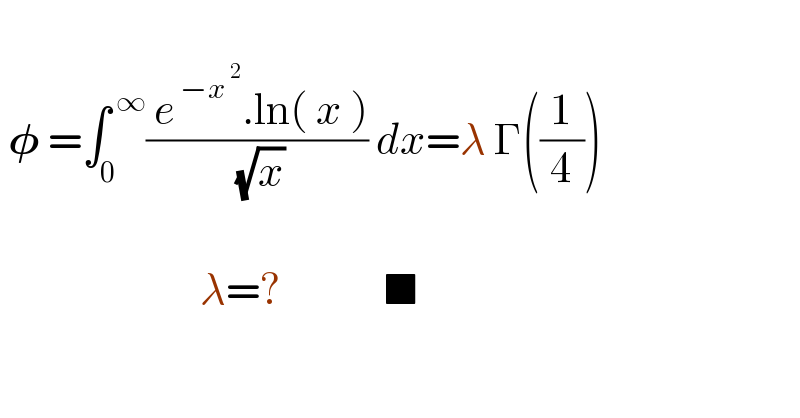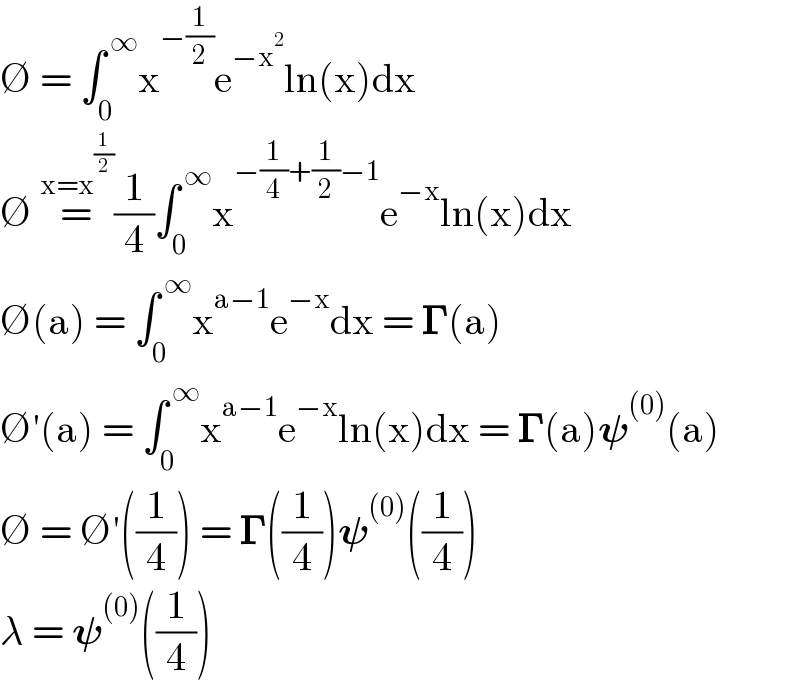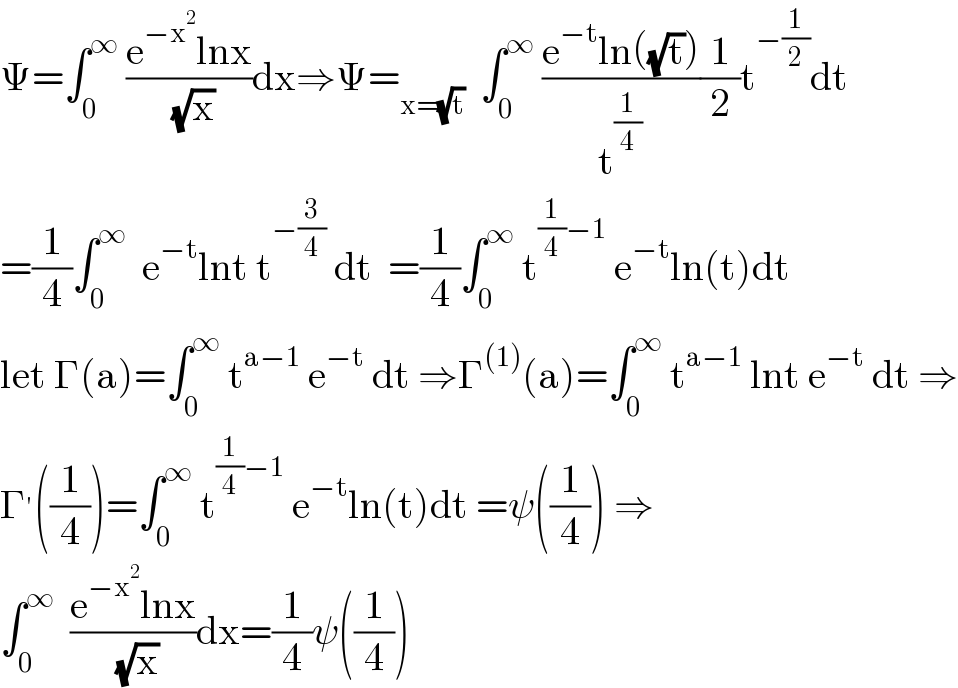
Question and Answers Forum
Question Number 162924 by mnjuly1970 last updated on 02/Jan/22

Answered by Lordose last updated on 02/Jan/22

Commented by mnjuly1970 last updated on 02/Jan/22

Answered by mathmax by abdo last updated on 02/Jan/22

Commented by mathmax by abdo last updated on 03/Jan/22

